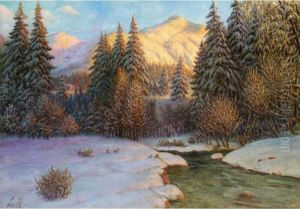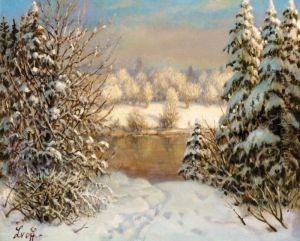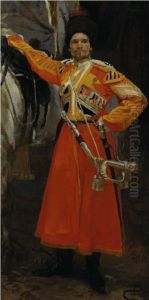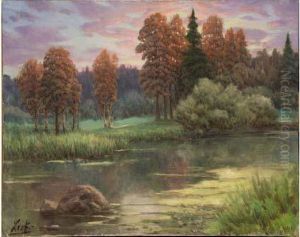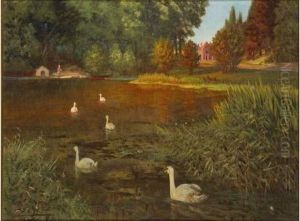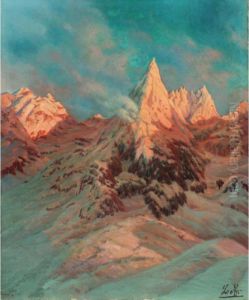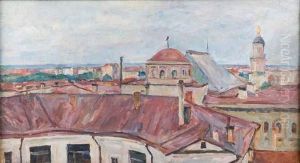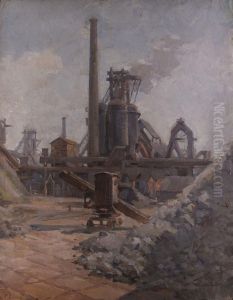Petr Ivanovich L'Vov Paintings
Petr Ivanovich L'Vov was a notable figure in the Russian art scene during the late 19th and early 20th centuries, whose contributions, though perhaps not as widely recognized as some of his contemporaries, played a significant role in the artistic movements of his time. Born in 1846, in a period marked by great social and cultural shifts within the Russian Empire, L'Vov's work was deeply influenced by the changing tides of Russian society, the growing interest in exploring new artistic expressions, and the increasing influence of Western European art movements.
L'Vov's early life was steeped in the rich cultural heritage of Russia, and from a young age, he demonstrated a keen interest in the arts. He pursued his education in art with great zeal, studying at the Imperial Academy of Arts. His studies there were pivotal, exposing him to a wide range of artistic techniques and philosophies, which would deeply influence his later work. L'Vov's art was characterized by its diversity, exploring various mediums and styles, from painting and sculpture to architecture and design, reflecting the eclectic nature of Russian art during this period.
Throughout his career, L'Vov was deeply engaged with the artistic and intellectual communities of Russia, contributing to the vibrant cultural dialogue of the time. He was an active participant in the Peredvizhniki movement, a group of artists who sought to break away from the strictures of academic art and engage directly with the social and political issues of Russia through their work. L'Vov's art from this period often depicted scenes of everyday life in Russia, imbued with a sense of realism and empathy towards his subjects.
In the later years of his career, L'Vov's work began to reflect the influence of emerging artistic movements such as Symbolism and Art Nouveau. His exploration of these new styles was indicative of his perpetual search for innovative forms of expression and his desire to capture the evolving spirit of his time. Despite facing challenges, including critical reception and the changing tastes of the art market, L'Vov remained committed to his artistic vision, leaving behind a body of work that offers a unique window into the cultural and artistic landscape of Russia at the turn of the century.
Petr Ivanovich L'Vov passed away in 1913, leaving a legacy that, though perhaps overshadowed by the more prominent figures of Russian art, remains an important testament to the rich tapestry of Russian cultural history. His contributions to the Russian art scene, marked by his dedication to exploring new artistic horizons and engaging with the social realities of his time, continue to be celebrated by art historians and enthusiasts alike.
